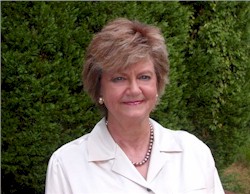| |
Case Watch:
For Mediators
The
following case analysis is part of a regular series we publish to help you
broaden your knowledge of rulings of Georgia’s appellate courts that may
affect your practice. Remember: mediators should not give legal advice
or opinions.
Review of Symms v. Symms, S10F1783, decided March 7, 2011, appeal to the
Georgia Supreme Court of a ruling by Judge J. David Roper, Richmond
Superior Court.
Taxes in
Divorce
Tax Returns are Federal Issue, Says Georgia Supreme Court in Divorce
Appeal
Taxes can be a major debt for divorcing parties, particularly when they
haven’t been paid. How can you assist the parties when one of them tells
you one or both of them hasn’t filed taxes for several years?
In Symms, the wife had a photography business, but the parties had failed
to report the income from the business for the purpose of assessment and
payment of income taxes. Evidently, the fact that they had not filed taxes
from 2005 through 2009 did not impress the judge.
Symms is a good case for reinforcing to the parties that they need to
mediate any differences, as some judges may take exception to their facts,
as the court did here. As we have repeatedly told parties, you never know
what a judge is going to do, and Symms confirms that.
Can a court order parties to amend their taxes when there is unreported
income and hold each part equally responsible for any tax liability for a
spouse’s business and taxes, interest and penalties? Yes, according to the
trial court. Let’s look at the extent of the trial court’s ruling.
The trial court’s stated displeasure over non-payment of taxes translated
into an order that required:
| |
First, both parties were to amend their 2005-2008 federal and state
income tax returns to reflect the income from the wife’s photograph
business, and that husband and wife “be equally responsible” for any
tax liability for the business and for the payment of consequent
taxes, interest and penalties.
Second, the wife was to accurately report her income from the business
for 2009 and to pay all taxes, interest, and penalties, as applicable.
Third, the exact dollar amounts for the minimum gross receipts and
profits were to be reflected on the 2009 return.
Fourth, such tax returns were to be filed by May 31, 2010, with signed
copies delivered to the court.
|
|
However, the Supreme Court agreed with the
parties that state trial courts are not authorized to impose federal
income tax liability. As we all know, federal law takes precedence over
state law, and federal income taxes are indeed federal.
It is ironic that both parties could agree on appeal that the trial court
had exceeded its authority. The parties couldn’t agree what was right at
the trial court level, but they could agree on what was wrong. As you
know, mediation would have saved them time and money at the trial level
and at the appeals level. The case was remanded back to the same trial
court judge for a determination consistent with the Supreme Court ruling,
so more court proceedings – and time and expense – were in the parties’
future unless they came to an agreement after the Supreme Court ruling. I
hope that logic prevailed or that the parties simply grew tired of writing
checks to their attorneys and they managed to come to an agreement before
further action by the trial court.
Symms is also a good case to remind mediators to why there are so many
domestic cases that are before the Supreme Court these days. The reason is
the Pilot Project for discretionary appeals, in which the Supreme Court
automatically grants appeals to non-frivolous, timely applications from
the entry of a final judgment and decree of divorce. The Georgia Supreme
Court in December 2002 undertook the pilot project to study the divorce
and alimony appeals process. The project was to expire in January 2009,
but it is has been extended until June 30, 2011. This is why there is
seldom a single session of the Supreme Court that doesn’t review a
domestic case. The Symms case was selected under the pilot project.
The pilot project basically gave the Supreme Court the authority to select
family law cases that they believe have errors and that will give
direction to domestic law. The appeals courts of Georgia are very active
in controlling and directing the domestic decisions of the trial courts.
That is another reason why it is important for us to be familiar with
their holdings.
 |
|
Mary Ellen Cates is an attorney and registered mediator
in Avondale Estates, Ga. She has practiced domestic law exclusively
since 1985. A divorce mediator since 1998, she is also a domestic
arbitrator, and she has been appointed as special master for DeKalb
County Superior Court.
Phone: 404-292-3803; fax: 404-292-1510;
mary.cates@att.net or
mecates@mindspring.com |
|
|

